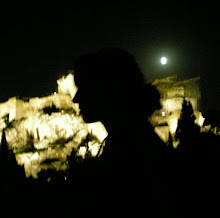The hounds bay with excitement. They have found the scent. They race off after their quarry, filled with elation as they perform their work. Yes, it is work, but it is good work. It is the work that they were created to do, and joy fills their bodies as they do it.
The underbrush is thick, and the dogs must fight their way through it. But they don’t care. All they care about is chasing that deer, for that is what their master wants them to do. They run with abandon. Through dense brush, under low hanging branches, across swift rills, they run. The hounds run and run and run.
The youngest hound begins to grow weary. In the beginning, he ran ahead of the other dogs in his enthusiasm, but now he falls to the back of the pack. The chase is long and hard. He has never run like this before.
An older dog woofs an encouragement to him. Experience knows the pursuit is worth the effort.
At last, they sight the hart. He stands alone among the trees. Exuberantly, the hounds fill the air with their song. The stag lifts his majestic head, crowned with antlers. He sees the dogs racing toward him.
For a moment, he waits.
With renewed energy the dogs rush forward, but the deer turns and bounds gracefully away. He maneuvers swiftly through the trees, rapidly expanding the gap between himself and his pursuers. Soon, he is lost to sight, but the scent is strong.
The dogs race onward in pursuit.
. . .
Okay, so I don’t actually know anything about hounds chasing deer, but that’s the image I get in my head when I read the word “pursue.” Pursing is chasing after and actively seeking. It is not a passive word.
Paul tells Timothy to “Pursue righteousness, godliness, faith, love, steadfastness, gentleness” (1 Timothy 6:11). The apostle again exhorts him in 2 Timothy 2:22, “pursue righteousness, faith, love, and peace.”
It’s not, sit in your tree stand and hope that these virtues come walking along, but grab your hounds and chase them down!
“. . . he loves him who pursues righteousness.” – Proverbs 15:9

 Near the Areopagus is the Odeon of Herodes (which is not nearly as old, having been built in only the second century B.C.). After more than 2000 years in use, this theater is showing evidence of wear—mainly from the stiletto heels of many visitors.
Near the Areopagus is the Odeon of Herodes (which is not nearly as old, having been built in only the second century B.C.). After more than 2000 years in use, this theater is showing evidence of wear—mainly from the stiletto heels of many visitors. 